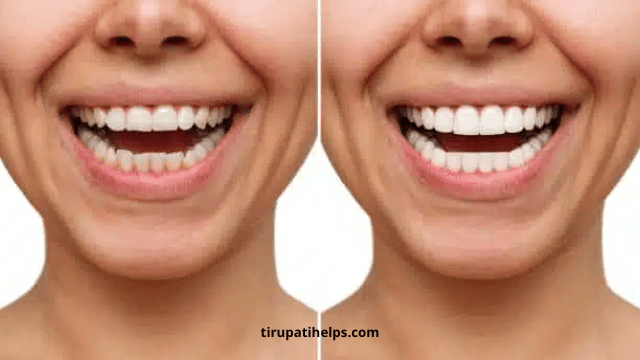Did you know that dentists can make thin, custom-made shells that fit over the front of teeth to make them look better. These are called dental veneers.
Veneers can cover up teeth that are stained, chipped, or not even. Two common types of veneers used by dentists are porcelain veneers and composite veneers.
Each type has its own set of advantages and disadvantages. In this article, we will explore the pros and cons of porcelain vs composite veneers to help you make an informed decision.
Porcelain Veneers
Porcelain veneers are thin shells made of porcelain that are custom-fitted and bonded to the front surface of your teeth. Here are some of the advantages of choosing porcelain veneers:
Aesthetic Appeal
Porcelain veneers are highly regarded for their natural and lifelike appearance. They closely resemble the color, texture, and translucency of natural teeth, resulting in a beautiful and seamless smile.
Stain Resistance
Porcelain is a material that is resistant to stains from coffee, tea, and other food and drink. This means that your porcelain veneers will maintain their brightness and whiteness over time, giving you a long-lasting radiant smile.
Durability
Porcelain veneers are known for their durability. With proper care and maintenance, they can last for more than a decade. They are less likely to chip or break compared to composite veneers.
There are several benefits to porcelain veneers. However, porcelain veneers may have drawbacks:
Cost
Porcelain veneers are generally more expensive than composite veneers. The cost can vary depending on factors such as the number of veneers needed and the expertise of the dentist. It is important to consider your budget before making a decision.
Irreversibility
To place porcelain veneers, a thin layer of enamel needs to be removed from the teeth. This irreversible process means that once you have porcelain veneers, you will always require some form of dental restoration on those teeth.
Composite Veneers
Composite veneers are made of a tooth-colored resin veneer materials that is applied and shaped directly onto the teeth. Here are some advantages of choosing composite veneers:
Affordability
Composite veneers are generally more affordable than porcelain veneers. If budget is a concern, composite veneers can be a cost-effective option for improving your smile.
Versatility
Composite veneers offer flexibility in terms of shaping and contouring. They can be applied and sculpted directly onto the teeth, allowing for customized results and adjustments during the procedure.
Reversibility
Unlike porcelain veneers, composite veneers are reversible. If you decide to remove or replace them in the future, it can be done without causing any significant damage to your natural teeth.
Composite veneers have many benefits but also have some drawbacks:
Stain Susceptibility
Composite veneers are more prone to staining compared to porcelain veneers. They may require regular maintenance and professional cleanings to keep them looking their best.
Durability
While composite veneers can be durable, they are generally not as strong as porcelain veneers. They may be more susceptible to chipping, cracking, and wearing down over time. You may visit some Denver veneers clinic for good and quality services!
A Guide to Pros and Cons of Porcelain vs Composite Veneers
Porcelain vs composite veneers have different advantages. Porcelain veneers are attractive, stain-resistant, and durable. However, composite veneers are cheaper, adaptable, and reversible.
When making a decision, it is important to consult with a qualified dentist who can assess your specific needs, budget, and desired outcome. They will help you choose the best option that will give you the smile you’ve always wanted.
Don’t forget to browse our site for more health and lifestyle blogs!

Leave A Comment